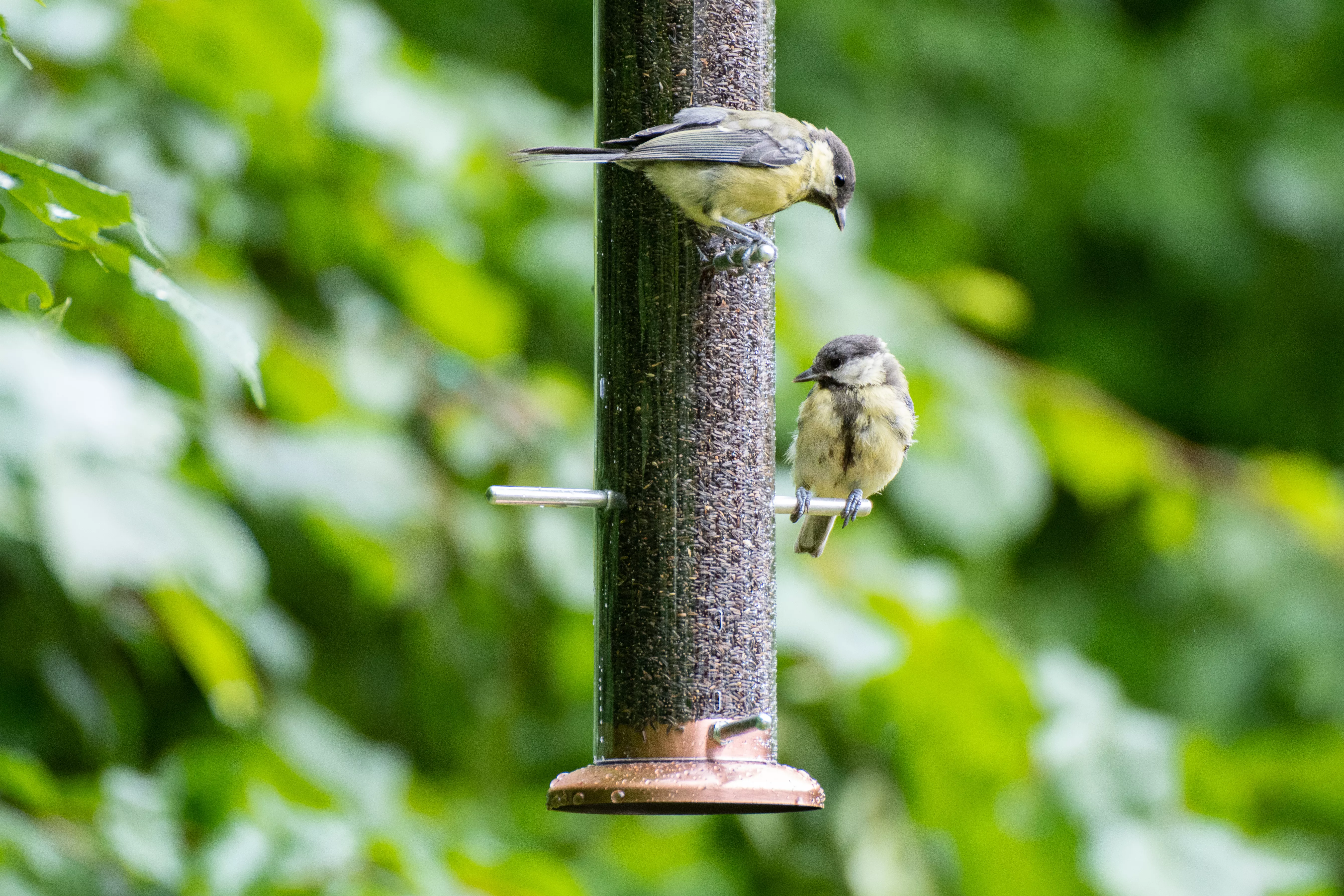
Fall season is here and some birds are starting to migrate south for the winter but there are some birds that stick around for the fall/winter months. Director, Debbie Pappas stopped by Castle Country Radio to talk about some important fall season feeding reminders.
The first thing to talk about is bird feeders for the fall season. “So I like the open feeders that are off the ground, but flat and open, I really like those. I have different kinds all the around by yard, they attract different kinds of birds. During the winter and fall, I really like the suet feeders, the birds that come down from the mountains this time of year and throughout the winter, they really like those. The Chickadees particularly, and the Chickadees will be here for the winter time,” said Pappas. The most important thing to remember for your feeders is to make sure they are kept clean. Clear out old nests, as well as, nesting materials so birds can take advantage of them safely and without injury or illness during the fall months
Putting out more feeders and different types of feeders will let you offer more of a variety in food choices. “Also, the Nyjer feeders, like the sock feeders, the little Finches they like clinging to those as well. So our little house Finches they don’t migrate, they will stay around. Sparrows they tend to stay around as well. The Juncos they are ground feeders, but they will also go to those flat feeders if you have them off the ground, they like those as well. They tend to eat the small, black, oiled sunflower seeds, so that’s why you don’t have a lot of waste,” said Pappas. Not only is it important to keep feeders clean and full but migrating birds get thirsty too, so having a birdbath or fresh clean water available is also important.
Second Chance Wildlife Rehabilitation is a state and federally permitted wildlife rehabilitation facility in Eastern Utah serving many counties throughout Utah. They are a non-profit organization where hundred percent of its funds go directly to the care and needs of the wildlife. The organization is always looking for individuals to volunteer, especially those that specialize in carpentry or electrical work to help with the ongoing construction of enclosures on the premises. If you would like more information on volunteering call (435) 650-3441 or to learn more about Second Chance Wildlife Rehabilitation visit their Facebook page.
